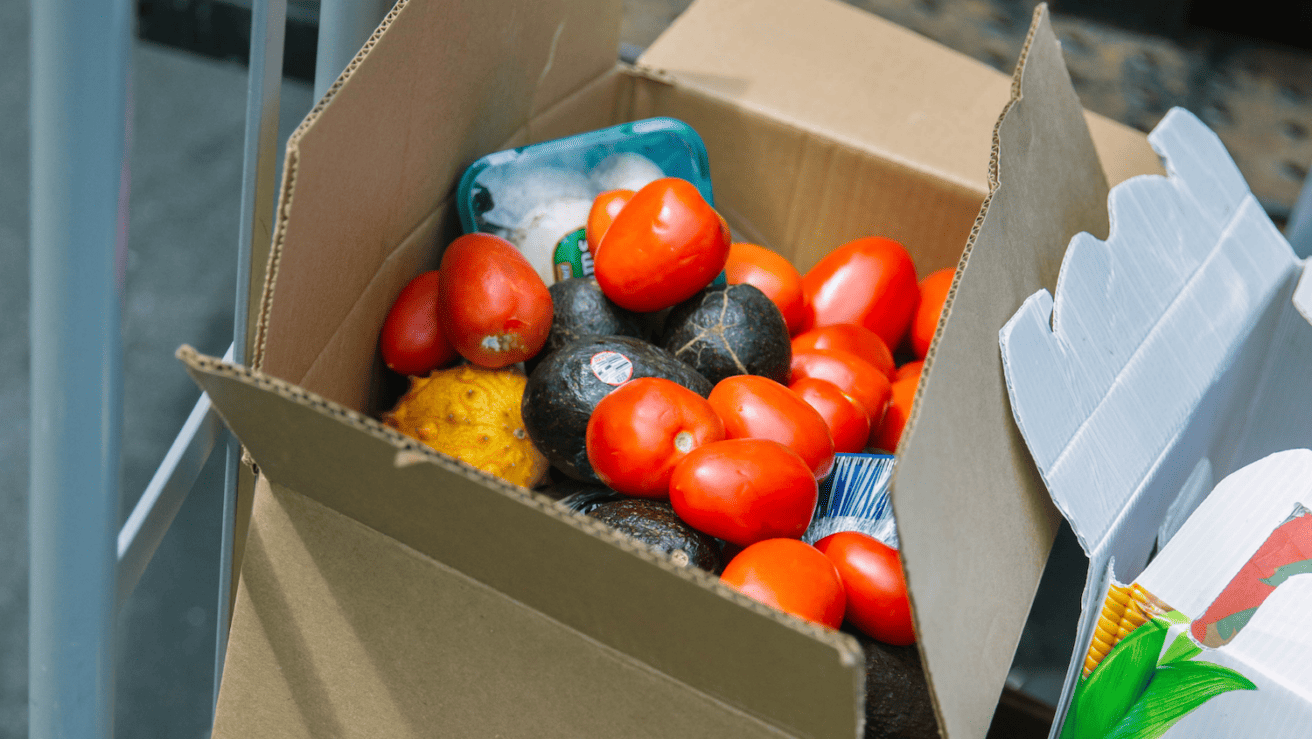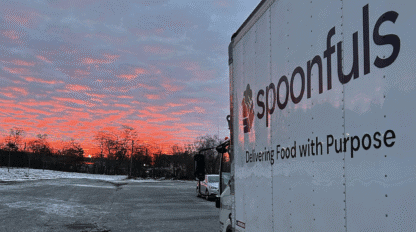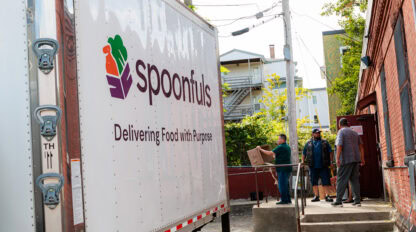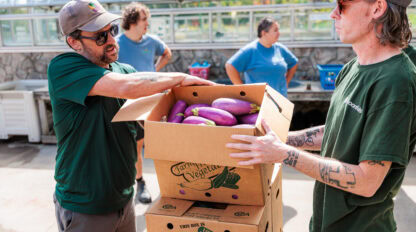Understanding the Issues: Hunger, Wasted Food, and the Climate Emergency

Through our work, Spoonfuls aims to address three major issues: wasted food, hunger, and the climate emergency. By focusing on these – both in our day-to-day food recovery operations and in our advocacy – we aim to play a part in creating a more resilient food system that feeds everyone sustainably.
One way we’re working on these issues is by helping more people (like you!) to understand these issues and to take action to address them. Enter, this blog!
State of Hunger
People in Massachusetts are experiencing hunger almost as frequently, and in some geographies more frequently, than they were during the peak of the COVID-19 pandemic. There are different approaches to measuring food insecurity rates (you can dive deeper into our State of Hunger in Massachusetts blog) with 2 million people experiencing hunger on the high end. Any way you slice it, many of our neighbors struggle to afford the food they need for themselves and their families, and Black and Latino households are disproportionately impacted.
As high as food insecurity rates are now, we expect the problem to get even worse thanks to still-high food prices and cuts to safety net programs and funding. Here’s where we are:
- The administration proposed and Congress approved historic cuts to SNAP (formerly “food stamps”) through the 2025 federal budget process. $290 billion will be cut from the program in the next 10 years. Massachusetts alone will experience $710 million less support from the federal government.
- USDA funding cuts impacted food banks and food bank-supported programs. In Massachusetts alone, this means $3.3 million less for emergency food resources.
- And there’s more. Read our Breaking through the Noise blog for additional details on these funding cuts and others.
But bottom line: Even if we scaled back rates of food insecurity to where they were pre-pandemic, that wouldn’t be acceptable: Everyone deserves enough safe, healthy food to eat. And the food is out there.
At Spoonfuls, we recognize that hunger in the United States isn’t a problem of supply. It’s a problem of access and distribution!
About Wasted Food
In the United States, around a third of all food goes unsold or uneaten. From farms that leave produce to rot in the field because market prices have changed and it’s no longer economical to harvest, to grocery stores that didn’t sell every box of apples and need to make room for a new shipment, there’s a massive amount of food going to waste in the U.S., and it’s happening across the food supply chain.
All of this combined leads to over 190 billion meals’ worth of food going uneaten in the U.S. every year. More wasted food facts:
- Food is the #1 material in U.S. landfills.
- Wasted food is valued at $339 billion.
- 80% of surplus food comes from perishable items, like fruits and vegetables.
We see all this wasted food as an opportunity. The more good food we can rescue, the more people facing food insecurity we can feed. Plus, keeping food from hitting the waste stream is good for the environment, too. (Note: Spoonfuls focuses on food recovery, but we’re one part of a collective effort to minimize wasted food. See other solutions here.)
On Climate
The impacts of the climate emergency are already being felt across the globe. From hurricanes and floods to droughts and heat waves, our homes and lives are already being impacted. As temperatures continue to rise, the impacts are expected to worsen.
We have limited time to minimize global greenhouse gas emissions, and we know wasted food is one big contributor in the U.S. What you should know:
- Uneaten food in the United States consumes:
- 3.5% of U.S. greenhouse gas emissions
- 15.5% of all freshwater use
- 16% of U.S. cropland
- 24% of landfill inputs
- When food decomposes in landfills, it emits methane, a greenhouse gas that traps heat in our atmosphere, contributing to global warming, at least 28 times the rate of carbon dioxide.
In short, curbing wasted food is one tool we have to respond to the climate emergency.
What You Can Do
By addressing wasted food, hunger, and the climate emergency, we can create an equitable and sustainable food system that fulfills its primary purpose: feeding people! We seek to play a part in realizing this vision every day through our work – and you can get involved, too. If you care about these issues, here’s what you can do:
Take Spoonfuls’ Food Waste Challenge: Make a personal commitment to reducing wasted food in your own home, school, or workplace. Taken collectively, small can have a big impact! We’ll send you resources to help you get started.
Donate. Spoonfuls relies on financial contributions to support our food rescue and hunger relief efforts. Help us keep food out of landfills and onto people’s plates.
Speak Up. Even as we’re working to meet an immediate need for fresh, wholesome food today, we’re committed to raising awareness of these issues underpinning our work and raising awareness for long-term solutions to address wasted food, food insecurity, and the climate emergency. You can advocate, too!


